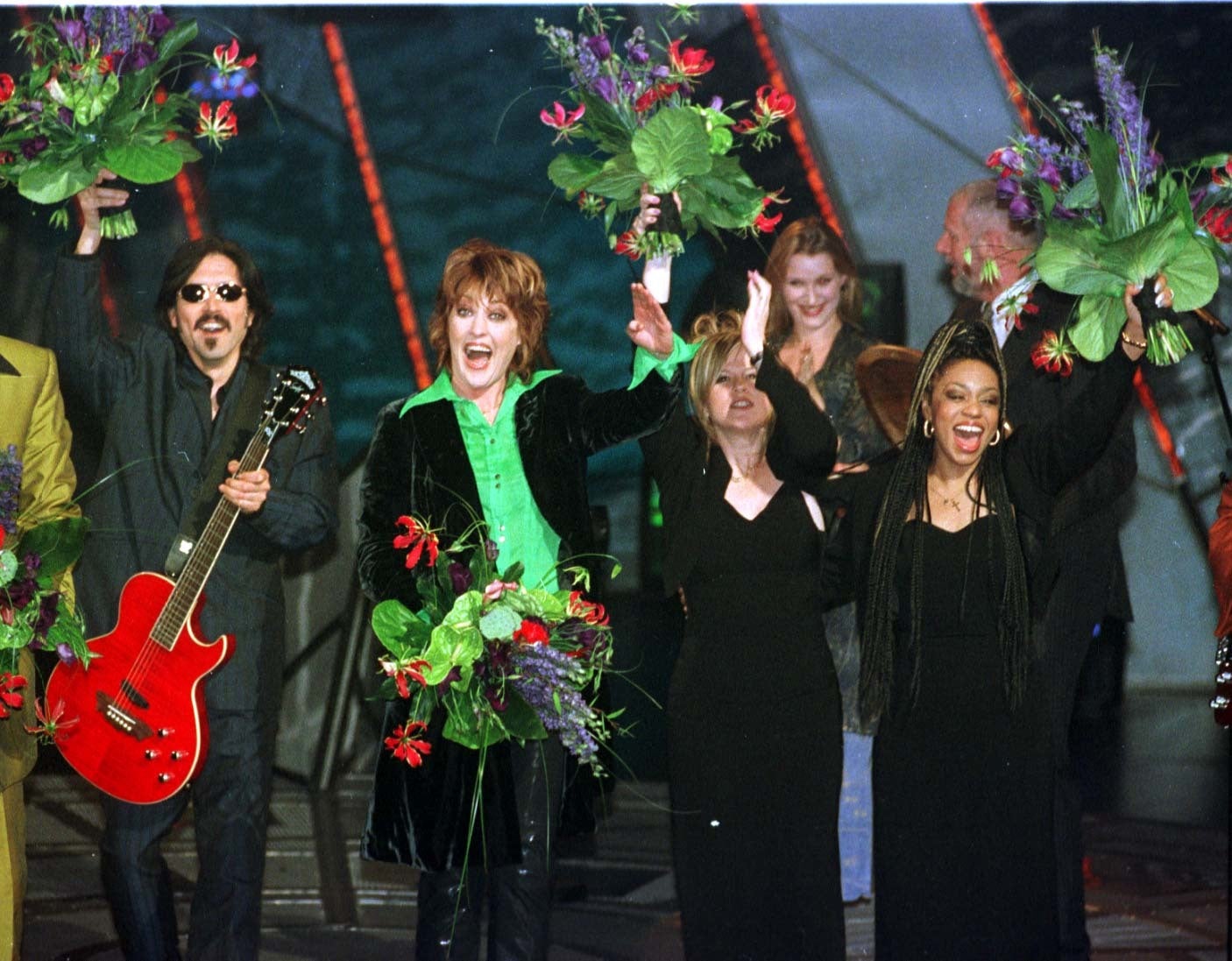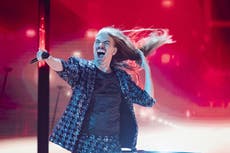Where are the UK Eurovision entries now?
Here’s what happened to some of the country’s most memorable entrants
The UK is hosting the Eurovision Song Contest for the first time in 25 years.
After finishing second in last year’s competition thanks to Sam Ryder’s entry “Space Man”, the UK was handed hosting duties for the 2023 event when the previous winner, Ukraine, was deemed unable to host due to the ongoing Russian invasion.
As a result, the Eurovision 2023 final will take place on Saturday 13 May in Liverpool.
This year, the UK’s entry is “I Wrote a Song”, co-written and performed by English singer-songwriter Mae Muller.
In the past, the nation’s Eurovision entries have covered a wide variety of performers, from household names like Cliff Richard and the late Olivia Newton-John, to more obscure up-and-comers.
Here’s a rundown of some of the UK’s most note-worthy past Eurovision entrants – and where they are now.
Sandie Shaw
Eurovision’s first British winner (for 1967’s “Puppet on a String”) was already a No 1 charting artist before competing, and went on to release several more albums after. Shaw announced in 2013 that she was retiring from the music industry completely.
Brotherhood of Man
1976 winners Brotherhood of Man (“Save Your Kisses for Me”) released more than a dozen albums after their Eurovision victory, and enjoyed a successful afterlife as a touring band. After years of sporadic live shows, the band finally announced their retirement from the circuit last year.

After winning Eurovision in 1981 with “Making Your Mind Up,” the harmonic group continue to enjoy success throughout the first half of the 1980s. Subsequent disputes saw a raft of line-up changes down the years; the band still currently exists, with singer Bobby G the only remaining original member.
Sonia
English pop singer Sonia finished as runner-up in the 1993 Eurovision contest with her song “Better the Devil You Know”. Between 1995 and 2009, she didn’t release any new singles, and appeared to have withdrawn from the music industry. In 2019, Sonia signed a deal with Energise Records, and released a new track, titled “A Night That’s Never Ending”.
Katrina and the Waves
Twelve years after landing a chart hit with “Walking on Sunshine”, British band Katrina and the Waves took Eurovision by storm with the track “Love Shine a Light”. After coming first at the 1997 event, the group nonetheless struggled for further chart success, and the band had dissolved by the turn of the millennium. The various members, including lead vocalist Katrina Leskanich and guitarist Kimberley Rew, have continued to release music as solo acts in the years since.

Imaani
The UK’s 1998 entrant, “Where Are You” runner-up Imaani, eventually released an album in 2014, and continues to perform across the UK and elsewhere both as a solo artist and with the acid jazz band Incognito.
Jemini
Chris Cromby and Gemma Abbey were the duo behind the UK’s 2003 entry “Cry Baby”. The off-key rendition infamously finished with “nul points” in the competition, and in 2021 was ranked by The Independent as our country’s all-time worst entry. Following the Eurovision flop, Jemini were dropped by their record label, Integral Records, and a planned album release was abandoned. They subsequently split up.
Lucie Jones
Former X Factor contestant Lucie Jones impressed critics with her performance at the 2017 Eurovision ceremony – being ranked by The Independent as the best of all time. Since finishing in 15th place, Jones has gone on to have a fruitful stage career, starring as Elphaba in Wicked on London’s West End, and as Fantine in Les Misérables, a role she is currently reprising at London’s Apollo Victoria Theatre.
The 2023 Eurovision Song Contest is held on 13 May.
Join our commenting forum
Join thought-provoking conversations, follow other Independent readers and see their replies
Comments


Bookmark popover
Removed from bookmarks